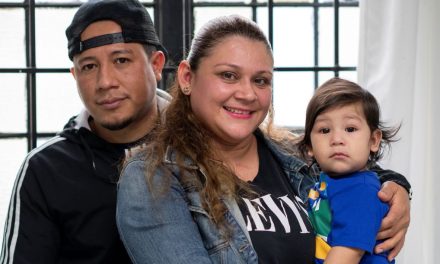
Study: Minority women face pregnancy with less “personal capital”
Contact: Susan Lampert Smith, (608) 890-5643, ssmith5@uwhealth.org
Madison, Wis. — Minority women in general go through pregnancy with fewer internal and social resources that could help them cope with or reduce their stress, according to a new study led by a University of Wisconsin School of Medicine and Public Health researcher.
Dr. Fathima Wakeel, a postdoctoral fellow in health disparities research, analyzed data from the 2007 Los Angeles Mommy and Baby (LAMB) study to see if there are racial and ethnic differences in “personal capital” during pregnancy. Personal capital is defined as a set of internal resources (such as self-esteem and mastery, or a sense of control over circumstances) and social resources (such as partner support, social network support, and neighborhood support) that may help women better cope with stress during pregnancy.
“For example,” Wakeel explains, “if a woman loses her job during pregnancy, having a higher sense of mastery and a partner, family, and friends who are willing to step in and help her financially and emotionally would make this situation much less stressful and have a less negative effect on her pregnancy.”
While she did find that white women have significantly more personal capital than African-American, Hispanic or Asian-Pacific Islander women, the differences among groups were not primarily due to race or ethnicity.
“This study suggests that the risks associated with poverty, being a single parent, and low levels of acculturation, rather than race or ethnicity, contribute to low personal capital for many minority pregnant women. This is important because interventions should be better tailored to reach these high-risk groups of women, rather than merely targeting a certain race or ethnicity, in order to increase their personal capital and ultimately reduce their risk of poor birth outcomes.” Wakeel says.
The study showed that the differences in personal capital varied by race and ethnicity in unique and even unexpected ways. For example, though Hispanics have historically had better health outcomes than African-American women and even white women of the same socio-economic status — the phenomenon commonly called the “Latino Paradox” — Hispanic women in this study reported lower personal capital than white women. Also, these differences in personal capital were completely explained by low socio-economic status of many Hispanic women in the study.
Wakeel says that the study suggests that low-income, single and immigrant mothers-to-be would benefit from programs offering comprehensive resources, such as individual, group, and couples counseling, group prenatal care, legal aid for single mothers to obtain child support, and neighborhood-based child care.
Wakeel’s co-authors are Dr. Whitney P. Witt and Lauren E.Wisk, of the UW Department of Population Health Sciences, Dr. Michael C. Lu of the University of California-Los Angeles and Dr. Shin M. Chao of the Los Angeles County Department of Maternal, Child and Adolescent Health Programs. The study was published in the Maternal and Child Health Journal: http://link.springer.com/article/10.1007%2Fs10995-013-1256-3.





